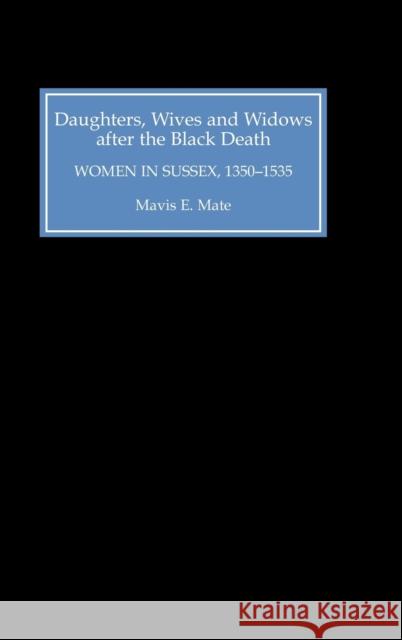Daughters, Wives and Widows After the Black Death: Women in Sussex, 1350-1535 » książka
Daughters, Wives and Widows After the Black Death: Women in Sussex, 1350-1535
ISBN-13: 9780851155340 / Angielski / Twarda / 1998 / 235 str.
It has long been thought that the post Black Death period offered unparallelled opportunities for women. However, through a careful consideration of economic and legal changes affecting women of all social classes and conditions, the author shows that this was not the case, taking issue with orthodox opinion. She argues that marriage at a late age was not customary for women, and that the ability of wives to supplement their income with intermittent paid labour (at harvest time, for example) was not so great as has been supposed: rather, most married women spent more time on unpaid agricultural labour on their own land than their peers had done in the pre-plague economy. Professor Mate also demonstrates that there is little evidence to support the current belief that widowhood was the period in a woman's life when she enjoyed most power, freedom, and independence; moreover, legal changes were a mixed blessing for women, leaving some widows with a larger portion and a more secure title to land, but totally depriving others. Throughout, the book pays much attention to class as well as gender, showing how many things were determined by it, from what a woman wore or ate to the age at which she married, her power within the household, and even her vulnerability to rape. The late MAVIS E. MATE was Professor of History Emerita, University of Oregon.











